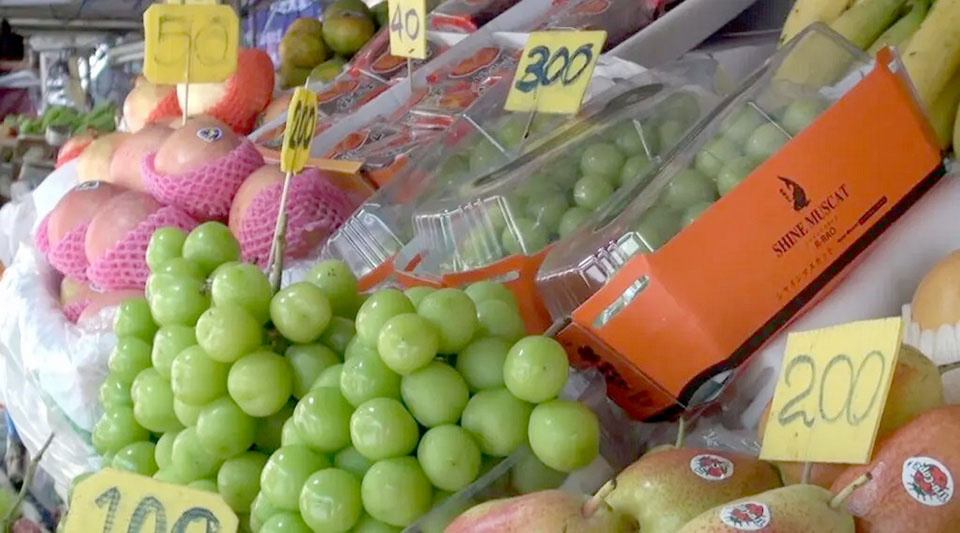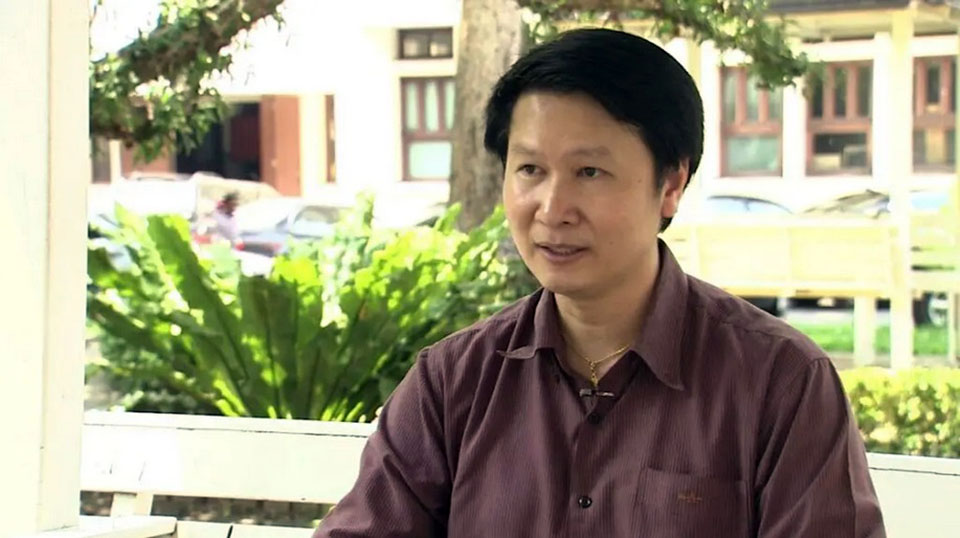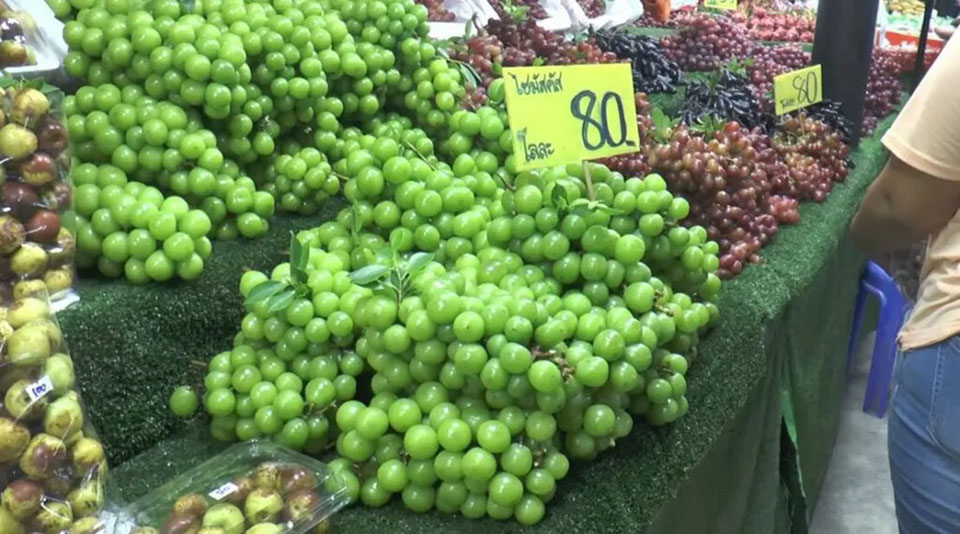
BANGKOK, Thailand – Sales of popular Shine Muscat grapes have plummeted in Thailand following a controversial report about pesticide residues, though authorities maintain the fruit is safe for consumption when properly washed, Oct 28.
The premium grape variety, known for its large, sweet berries, came under scrutiny after Thai-PAN, a consumer advocacy network, together with Smart Buyer Magazine and Foundation for Thai Consumers released findings from tests on 24 samples collected across Bangkok and surrounding areas. The samples, ranging in price from 100 to 699 baht per kilogram, were sourced from modern retail outlets, wholesale markets, and street vendors.
While initial reports suggested that 95.8% of samples exceeded safety standards for chemical residues, experts have challenged this interpretation.
Associate Professor Jessada Denduangboripant, biology lecturer at Chulalongkorn University, argues the findings have been misrepresented, causing unnecessary panic in the market.
“Most samples actually met international safety standards,” said Denduangboripant. “Only one sample showed slightly elevated levels of a single chemical compound.”

The Thai Food and Drug Administration (FDA) corroborated this assessment, noting that only one sample contained traces of chlorpyrifos, a banned substance. Other detected residues fell within acceptable safety limits or were not considered substances of concern by international standards.
The Shine Muscat variety, originally from Japan, has gained popularity across Asia, with significant production in China and Thailand. Domestic cultivation occurs in several Thai provinces, including Chiang Mai, Phrae, and Phetchabun’s Khao Kho district, though Chinese imports have recently dominated the market.
To ensure safe consumption of Shine Muscat grapes, the FDA recommends thoroughly washing them. This can be done by soaking the grapes in plain water for 15 minutes followed by rinsing, or by creating a cleaning solution. For a baking soda solution, mix 1 teaspoon of baking soda with 4 liters of water. Alternatively, use a salt water solution by dissolving 1 tablespoon of salt in 2 liters of water.
“Consumers should not panic,” the FDA statement emphasized. “These grapes are safe for consumption when properly cleaned.” (TNA)









